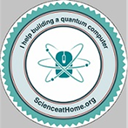Phylo Alternative: Top Tools for Citizen Science & Distributed Computing
Phylo, while appearing to be a captivating game, serves a crucial scientific purpose: leveraging collective human computing power to tackle complex problems like Multiple Sequence Alignments. However, if you're looking to explore other avenues for contributing to scientific research through gaming or distributed computing, or simply seeking a different kind of citizen science experience, there are numerous excellent Phylo alternative options available. This article will guide you through some of the best alternatives that offer similar opportunities to make a real-world impact.
Top Phylo Alternatives
Whether you're interested in solving puzzles for scientific breakthroughs, donating your computer's idle time, or engaging in crowdsourced data analysis, these alternatives provide diverse ways to contribute to vital research and projects.

Foldit
Foldit is an experimental video game that allows players to contribute to scientific research on protein folding. Similar to Phylo's game-like approach to problem-solving, Foldit transforms complex scientific challenges into engaging puzzles. It's a free game available on Mac, Windows, and Linux, making it an accessible and interactive way to participate in scientific discovery, specifically in the realm of biological research through gaming and puzzle-solving.

Folding@home
Folding@home is a well-known distributed computing project that harnesses the power of individual computers to combat diseases through data-crunching research. While not a game like Phylo, it offers a direct way to contribute computational resources to scientific endeavors. It's a free platform available on Mac, Windows, Linux, and Docker, focusing purely on distributed computing to solve complex scientific problems, making it a powerful Phylo alternative for direct computational contribution.

Distributed Proofreaders
Distributed Proofreaders provides a web-based, open-source method to convert Public Domain books into e-books. By dividing the workload into individual pages, it leverages crowdsourced efforts for a valuable task. It's a free, open-source, and web-based platform that exemplifies distributed computing and crowdsourcing, offering a different kind of collaborative project compared to Phylo's scientific focus but similar in its distributed nature.

Zooniverse
The Zooniverse is the internet's largest and most popular platform for citizen science projects. It offers a wide array of projects where users can contribute to research by analyzing real scientific data. This free, web-based platform is an excellent Phylo alternative for those interested in diverse crowdsourced and distributed computing projects, from classifying galaxies to transcribing historical documents, providing a broad spectrum of scientific engagement.

Quantum Moves
Quantum Moves, part of the scienceathome.org initiative, is a game born from physics research dilemmas at Aarhus University. Similar to Phylo, it gamifies complex scientific problems, allowing players to contribute to quantum physics research. It's a free game available on Mac, Windows, Linux, and Web, providing a unique crowdsourced experience in the field of quantum mechanics.

CryptoBullions Folding Pool
The CryptoBullions Folding Pool is an official folding pool for CureCoin, allowing Folding@Home users to earn cryptocurrency for their computational contributions. While not an alternative to Phylo's core game mechanics, it offers a unique incentive for distributed computing, linking scientific research with blockchain technology. It's a free, open-source, and web-based platform for those interested in combining distributed computing with cryptocurrency rewards.

HFM-NET
HFM-NET is a Folding@Home Client Monitoring Application. While not a direct alternative to Phylo's scientific problem-solving, it supports the distributed computing efforts of Folding@Home by providing monitoring capabilities. It's a free, open-source application for Windows, enhancing the user experience for those already contributing to distributed computing projects and falls under the umbrella of tools supporting crowdsourced scientific endeavors.
Each of these options provides a unique way to contribute to scientific research and distributed computing. Whether you're drawn to game-based problem-solving, donating idle computer power, or participating in large-scale data analysis, exploring these Phylo alternative tools will help you find the perfect fit for your interests and resources.